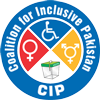According to the final result of sixth Census published by the Pakistan Bureau of Statistics, the total population of persons with disabilities (PWD) in Pakistan is 913,667 (including 638,598 in the rural areas and 275,069 in the urban areas which is 0.44 percent of the country’s total population. Of these, only 371,833 PWDs are registered with the National Database and Registration Authority (NADRA). The remaining 541,834 PWDs who still do not possess the Special National Identity Cards (SNICs) obtained through registration with NADRA are deprived of the benefits and due rights provided to them by the state. These include availing public social security funds, availing the public health facility, opening of a bank account, and many other services.

Arman Khan, a PWD – in his forties, lives in a village of Bannu with his four siblings and a physically handicapped father. Out of the family of six, only two brothers are working on daily wages and who earn a small amount for the family. They do not have their own home and are living in a rented house that further adds to the burden. Due to their economic situation, Arman received no education and is unable to work for his living and considers himself a burden on his family. He wanted to avail the public financial services to contribute to his family’s earning. But he was unable to register for any of the government schemes initiated to help the needy, including Ehsaas Kafalat and Benazir Income Support Programme (BISP), or other facilities provided by the state. And the only reason for this is having no SNIC.
Nazmeen is a member of the Coalition for Inclusive Pakistan (CIP), a coalition of civil society organizations representing and advocating for the political and electoral rights and interests of PWDs, transgender people and women in Pakistan, which is supported by the Trust for Democratic Education and Accountability (TDEA). She came to know about Armaan as she lives near his village, and paid him a visit. Arman explained that, due to his condition, he is unable to go to the NADRA office for registration of SNIC. He requested Nazmeen for the support in getting his disability certificate and SNIC so that he can register in the Ehsaas and BISP schemes.
Nazmeen took the initiative and discussed the matter with the CIP members from the Bannu region. Recently, through the efforts and collaboration with CIP’s regional chapter, the government had set up a facilitation camp for PWDs in Bannu. A team of three CIP members facilitated Arman and took him to the facilitation camp. However, due to Arman’s disability, the stiffness of his hands and feet, he was unable to fulfil the requirement of biometric verification through fingerprints, which is mandatory for the processing of SNIC.
In order to facilitate Arman, the Bannu CIP constituted a two-member committee with the goal of advocating this issue with NADRA officials. In this regard, the committee conducted two advocacy meetings with NADRA’s legal and technical departments. The officials guided the committee to provide pictures of Arman’s stiff hands along with a medical report to justify his genuine medical problem. Once all the documentation was submitted, NADRA committed to facilitate him in getting his SNIC.
Arman Khan’s case is not an isolated one. As mentioned, there are over 500,000 PWDs who, despite being citizens of Pakistan, are unable to avail the benefits of their citizenship, which is their right, only because they do not have an identity card. It is the responsibility of the state to take measures to deal with such issues and introduce a mechanism that can ease the process of obtaining an SNIC for those with disabilities, who are among the most in need of support. CIP, with the assistance of Trust for Democratic Education and Accountability (TDEA), is in contact with NADRA officials and has been urging them to facilitate more PWDs to get their SNICs.






